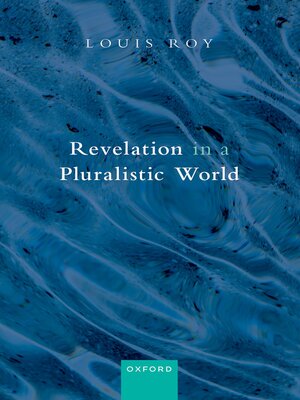
Sign up to save your library
With an OverDrive account, you can save your favorite libraries for at-a-glance information about availability. Find out more about OverDrive accounts.
Find this title in Libby, the library reading app by OverDrive.



Search for a digital library with this title
Title found at these libraries:
| Loading... |
Since the Enlightenment, the churches have progressively suffered a severe loss of status because of their belief that revelation is realized only in Christianity. The suggestion that Christian revelation might be truer than other so-called revelations seems to be preposterous. This book argues that this insistence has often remained unnuanced and simplistic, with the consequence that not only unbelievers as well as believers of other religions, but even numerous Christians no longer agree with the primacy of a truth revealed in Jesus Christ. The book addresses the difficulties affecting the interpretation of belief, given modernity's concerns. The volume sets out a provisional synthesis on revelation and it makes available much expository and historical information. It correlates distinctions between pair members such as the natural and the supernatural, conceptualism and intellectualism, heart and reason, subjectivity and objectivity, limited perspective and universal viewpoint, permanence of doctrine and historicity, Christian and non-Christian claims regarding truth, revelation and divine speech, moderate and radical pluralism, Jesus absolutized and Jesus relativized. The thrust of the argument is towards an appropriation of what is best in ancient, medieval, and modern traditions on revelation. This book delineates, in an original way, a position on revelation that is at once traditional and relevant for today. It accepts many values brought to the fore by modernity and draws from exegetes, historians, philosophers, and theologians. Its inspiration comes principally from the Bible, Thomas Aquinas, John Henry Newman, and Bernard Lonergan.






